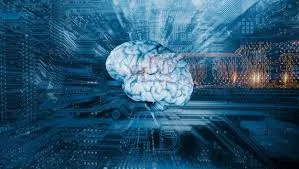It has become very important to develop clear legal instructions and guidelines regulating the work of technology in the human resources sector.
Humanity has learned many lessons from the Corona pandemic, perhaps the most prominent of which are flexibility at work and the importance of technology, especially artificial intelligence and machine learning in managing life affairs.
Companies have been successful in using these tools effectively in recruitment, training, and performance appraisal processes, and artificial intelligence has helped companies make better hiring decisions by responding faster.
Artificial intelligence is reshaping the cities of the future
A robot playing basketball and another superior in table tennis How will artificial intelligence change sports?
Companies use algorithms to analyze data about their thousands of job applicants and choose the best among them, and with artificial intelligence, human resources are working much more efficiently than they used to be.
The size of the global artificial intelligence market is expected to grow from $47.47 billion in 2021 to $360.36 billion in 2028, with a compound annual growth rate of 33.6%, and this growth will mean more dependence on artificial intelligence in all parts of work, including the recruitment and training sector. , so as mentioned site recently , "ABN News" (apnnews).
A pivotal role for artificial intelligence
A recent opinion poll conducted on human resources experts and specialists in Japan concluded that more than 60% of the respondents answered that they have positive expectations about the use of artificial intelligence in recruitment processes, as recently reported by the technology.org platform .
Artificial intelligence will play a pivotal role in recruitment processes in the future, and in fact, we are starting to see this role from now, as many global recruitment companies rely on the use of algorithms and artificial intelligence to select the right employees.
But there is another dark side to this process, as this use can pose an ethical dilemma and a real threat to the privacy of users, and perhaps one of the most prominent examples of this is what has become known globally as the “Japanese Rikunabi Data Scandal”, which is the scandal Discussed by researchers: Fumiko Kudo, Hiromi Arai, and Arisa Emma in a paper titled "Ethical Issues Related to the Use of Artificial Intelligence in Recruitment Processes: The Rickonabe Scandal as a Model".
Scandal background
Each year, about 800,000 students graduate from Japanese institutes and universities, and enter the labor market in search of a job suitable for their qualifications, and there are more than 31,000 Japanese companies looking to hire these graduates or choose the right ones for their operations, and all of these (students and companies) are registered in one of the largest Japan's online job site, Rickonabe, is a subsidiary of Recruit Career, which caters to fresh graduates.
The company acts as an intermediary between graduates looking for work and companies looking for suitable candidates for the job vacancies it owns.
During this process, the company collects and analyzes the demographic information and cookies of job seekers (students) collected through the corporate needs matching service, and also calculates the degree of likelihood that each graduate will fit the needs of the companies, through the use of its own analysis algorithms.
The scandal began when information was leaked to Japanese media that the company had sold the data of students looking for work to at least 38 Japanese companies; Among them are well-known companies such as Toyota and Mitsubishi, which caused a sensation in Japan, and led the Tokyo Labor Office to investigate the incident.
The investigation found that Recruit Career's sharing of personal information with client companies violated the Employment Assurance Act, which resulted in heavy fines being imposed on the company.
Real ethical concerns
Returning to the aforementioned research paper, I discussed at length the ethical concerns related to the use of algorithms and artificial intelligence, or what is known as human resource technology in recruitment processes, and the huge amount of information and data collected, whether from job seekers or companies looking for talent necessary to continue their work.
The paper reached important conclusions; Perhaps the most prominent of them is that “the degree of probability of students accepting or rejecting job offers depends on personal information, and the personal information itself may not be the most important, but the ways of dealing with it and methods of analyzing it, and excessive reliance on technology can create ethical and social problems, which is the matter This may present challenges for developers or companies to accept, and the more accurate the analysis, the more likely the results are to be accepted as facts, leading to an increased risk of violating legal and social interests on the data subject.”
The researchers also explained that "there are no specific legal instructions and guidelines capable of striking a balance between the accuracy of analysis and the protection of personal data, and thus the ethical and social discussion becomes extremely important."
The importance of building an ethical system
The researchers emphasized that “in order to build consensus among the various parties involved in the recruitment process, it has become very important to develop clear legal instructions and guidelines regulating the work of technology in the human resources sector, and these guidelines and instructions must be in line with the principles of global artificial intelligence governance, in addition to to the national context and the customs and traditions of the society. Despite this incident in Japan, the researchers ended their paper with the hope that “this issue and the discussion around it will contribute to building a clear ethical system in dealing with artificial intelligence, especially in the way sensitive personal data is handled.”
In conclusion, it remains to say that those who sold that data are humans and not artificial intelligence per se, and the issue remains the same since time immemorial: How do we humans deal with the data of the fourth industrial revolution? It is a question that will always be answered
Tags:
DIGITAL LINE


